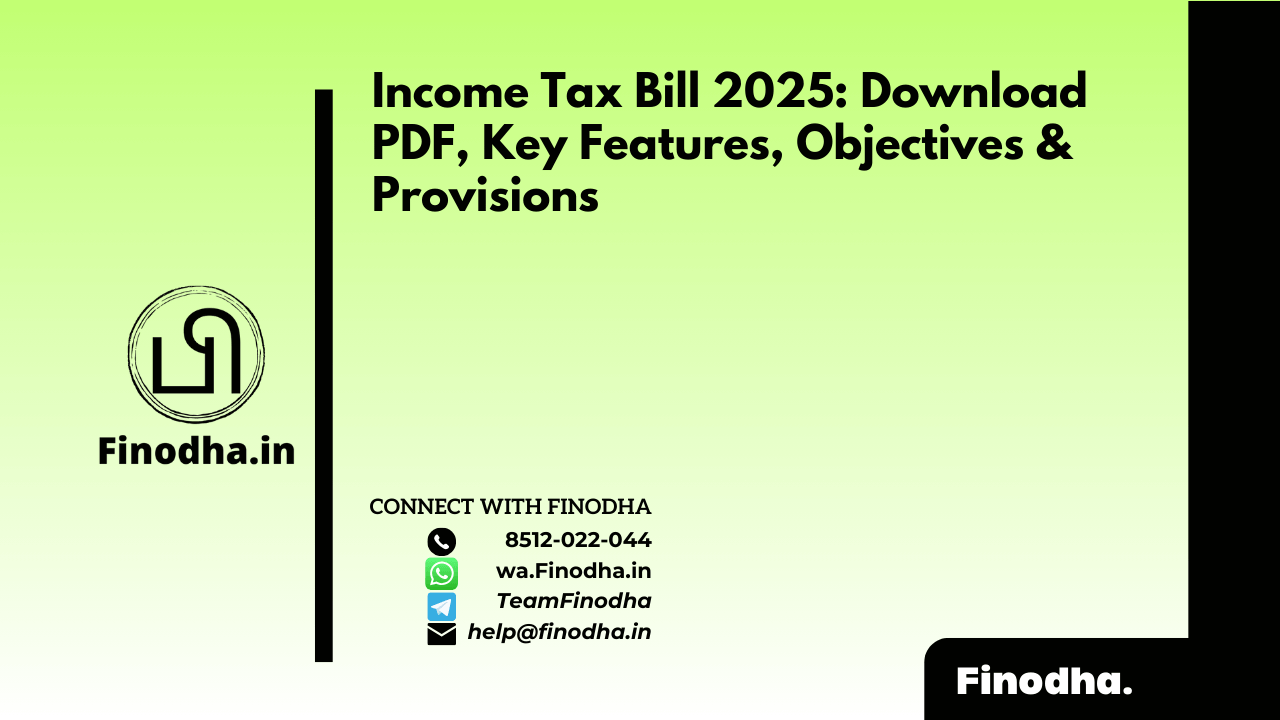Important Keyword: Post-Audit, Section 107(2) CGST 2017, Circular 17/17/2017-GST, Circular No. 125/44/2019-GST, Rule 89(2) CGST Rules, Rule 89(2) CGST Rules, Section 54(10) CGST Act, Section 54(8) CGST Act, Clause (b) section 54(4) CGST Act, Rule 89(3) CGST Rules, FORM GSTR-2A, Circular No. 135/05/2020-GST, Section 107(2) CGST Act, FORM GSTR-1, FORM GSTR-3B, ICEGATE portal.
F. No. CBEC-20/16/35/2019-GST
Government of India
Ministry of Finance
Department of Revenue
Central Board of Indirect Taxes & Customs
GST Policy Wing
New Delhi dated the 14th June, 2022
Instruction No. 03/2022-GST
Table of Contents
To,
The Principal Chief Commissioners / Chief Commissioners / Principal Commissioners / Commissioners of Central Tax (All)
The Principal Directors General / Directors General (All)
Madam/Sir,
Subject: Procedure relating to sanction, post-audit and review of refund claims- reg.
Attention is invited to sub-section (2) of section 107 of the Central Goods and Services Tax Act, 2017 (hereinafter referred to as “CGST Act”) which provides that the Commissioner may review any decision or order, including an order of refund, with respect to its legality or propriety and he may direct any officer subordinate to him to file an appeal against the said decision or order within 6 months of the date of communication of the said decision or order. Reference is further drawn to entry against the subject pre-audit in table under para 3.3 of the Circular 17/17/2017-GST dated 15.11.2017 wherein it has been stated that pre-audit of refund orders is not required to be carried out but the post-audit of the refund orders may, however, continue on the basis of extant guidelines.
2. Subsequently, Board has been receiving reports of different practices being followed by the field formations regarding sanction, review and post-audit of refund claims. In certain Commissionerates, speaking order is being issued in respect of all refund claims, whereas in others, speaking orders are not being issued if the refund is sanctioned in full. Similarly, in case of review and post-audit, different practices are being followed by the field formations. The matter has been examined with the twin purpose of ensuring uniformity in procedure and enabling effective monitoring of sanction of refund claims in order to safeguard interest of revenue. Accordingly, the Board hereby issues the following instructions/guidelines for sanction, post-audit and review of refunds:
2.1 Sanction of Refund
2.1.1 Detailed guidelines for processing of refund claims in GST have been issued by the Board vide Circular No. 17/17/2017 GST dated 15.11.2017 (for manual processing of refunds) and Circular No. 125/44/2019-GST dated 18.11.2019 (for electronic filing and online processing of refunds) to ensure uniformity in processing of refund claims. In both of these Circulars, it has been mentioned that the proper officer shall follow the principle of natural justice before taking the final decision with regard to refund claim. Principle of natural justice inter-alia provides that a detailed speaking order needs to be issued providing a basis for sanction/rejection of refund. Therefore, while passing the refund sanction order in FORM GST RFD-06, the proper officer should also upload a detailed speaking order along with refund sanction order in FORM GST RFD-06. In order to ensure uniformity in issuance of such speaking order, it is clarified that such speaking order should inter alia contain the following details:
A. Details for all category of refund claims:
a) The period for which refund claim has been filed, date of filing & the category in which refund has been claimed.
b) Whether it has been checked that refund claim for the same period has not been filed in the same category including any claim filed under ‘Any Other’ Category.
c) Details of Deficiency Memo, if any, in FORM GST RFD-03 issued in respect of the said refund claim previously.
d) Whether the refund claim has been filed within limitation of time, as provided under CGST Act and Rules thereof, including in the cases, where Deficiency Memo in FORM GST RFD-03 had been issued previously.
e) Details of the documents/ statements uploaded along with the refund claim. Whether all the necessary documents have been uploaded with the refund claim in terms of rule 89(2) of the CGST Rules. Details of document furnished by the applicant via email/ in soft copy/ in hard copy, if any, may also be provided.
f) Whether all the due returns have been filed by the applicant or not, whether any dues are pending recovery from the applicant, and whether refund is required to be withheld/ any amount is required to be deducted as per provisions of section 54(10) of CGST Act on account of non-filing of returns or dues being pending for recovery from the applicant.
g) Whether any SCN was issued to the applicant. Details of reply of the applicant and PH details.
h) Discussion and findings in respect of applicant submission. Details of case laws relied upon in deciding the matter, if any.
i) Whether provisions of unjust enrichment are applicable or not in terms of the provisions of section 54(8) of the CGST Act. If unjust enrichment is applicable in the refund, whether the applicant has furnished due documents/ certificates, in terms of clause (b) of section 54(4) of CGST Act, certifying/ establishing not passing burden of tax, in respect of which refund is being claimed, on any other person.
B. Additional details in case of the refund of accumulated ITC (on account of zero-rated supplies/ inverted rated structure) and refund of IGST paid on account of zero-rated supplies:
a) Whether the refund amount claimed has been debited from the electronic credit ledger, in terms of sub-rule (3) of rule 89 of CGST Rules.
b) In case of refund of IGST paid on account of zero-rated supplies, whether the amount of IGST has been paid through GSTR-3B return.
c) Whether the calculation given by the applicant of export/ zero-rated turnover, adjusted aggregate turnover, turnover of inverted duty supplies, as applicable, is correct as per the relevant provisions.
d) Whether calculation of Net ITC, where ever applicable, is correct as per the relevant provisions. Also, whether the verification of admissibility of ITC as per the provisions of GST Law has been done or not and the findings thereof.
e) Whether it has been verified that ITC on capital goods has not been included in calculation of Net ITC for refund of ITC in zero rated supplies.
f) Whether it has been verified that ITC in respect of input services as well as capital goods is not included in calculation of Net ITC in case of inverted tax structure refund.
g) Whether refund has been restricted to the ITC as per those invoices, details of which are uploaded by the supplier in FORM GSTR-1 and are reflected in FORM GSTR-2A of the applicant in terms of Circular No. 135/05/2020-GST dated 31.03.2020.
h) Whether the refund is barred under the provisions of 2nd and 3rd proviso to section 54(3) of the CGST Act, 2017.
i) Details of computation of refund claim amount as per the relevant provisions/ prescribed formula in the Act/ Rules and verification whether the refund amount claimed is correct or not.
j) In case of refund on account of inversion, whether the supply qualifies for refund of unutilised ITC under clause (ii) of 1st proviso to section 54(3) of the CGST Act, 2017.
k) In case of refund on account of export of goods, whether the details of shipping bill/ bill of exports, where ever applicable, have been verified from the ICEGATE portal.
1) In case of refund on account of export of services, whether the claimant has furnished the BRC/FIRC/ other relevant documents evidencing receipt of export remittances in respect of zero-rated services for which refund is being claimed.
m) In case of refund on account of zero-rated supply by DTA to SEZ, whether the said supply is meant for authorized operations on the basis of Letter of Authorisation (LOA). Further, whether the details of supply by the applicant to the SEZ have been cross checked from the SEZ Online portal.
n) Whether the documents pertaining to zero-rated supply to SEZ have been endorsed by the specified/authorized officer of the zone.
o) Whether the DTA supplier has received the payment from the SEZ recipient in case of supply of services to SEZ.
C. Additional details in case of refund of tax paid on supplies regarded as deemed export:
a) Whether necessary procedure was followed while making procurement/supplying of goods regarded as deemed exports.
b) Whether the ITC claimed against the tax paid on such deemed export supplies has been debited from the electronic credit ledger by the recipient for filing application of refund.
c) Whether it has been verified that no ITC has been claimed by the recipient when refund is claimed by supplier.
D. Additional details in case of refund of excess balance in cash ledger:
a) Whether the amount claimed has been debited from the electronic cash ledger.
b) Whether the amount to be refunded has been calculated in accordance with the provisions of section 49(6) of CGST Act.
E. Additional details in case of refund filed under the other categories of refund except those mentioned above:
a) Whether the documents furnished/uploaded along with the refund claim have been verified for their correctness from the source like FORM GSTR-1, FORM GSTR-3B, ICEGATE portal etc., where ever required.
b) Details of the verification conducted and reasoning for grant/ rejection of refund.
c) In case of refund ITC filed under “Any Other” category, whether the amount claimed has been debited from the electronic credit ledger, wherever required.
2.1.2 It is mentioned that ACES-GST portal provides the facility for uploading a document in pdf format along with the FORM GST RFD-06 order. The same may be utilized by proper officer for uploading the speaking order along with refund sanction order in FORM GST RFD- 06 so that the same is made available to the refund applicant as well as Post-audit/Reviewing Authority online.
2.2 Post-Audit and Review:
2.2.1 Sub-section (2) of section 107 of the CGST Act provides that the Commissioner may examine any decision or order, including an order of refund, with respect to its legality or propriety and he may direct any officer subordinate to him to file an appeal against the said decision or order within 6 months of the date of communication of the said decision or order. The said sub-section is reproduced below:
(2) The Commissioner may, on his own motion, or upon request from the Commissioner of State tax or the Commissioner of Union territory tax, call for and examine the record of any proceedings in which an adjudicating authority has passed any decision or order under this Act or the State Goods and Services Tax Act or the Union Territory Goods and Services Tax Act, for the purpose of satisfying himself as to the legality or propriety of the said decision or order and may, by order, direct any officer subordinate to him to apply to the Appellate Authority within six months from the date of communication of the said decision or order for the determination of such points arising out of the said decision or order as may be specified by the Commissioner in his order.
2.2.2 Accordingly, as per extant practice, all refund orders are required to be reviewed for examination of legality and propriety of the refund order and for taking a view whether an appeal to the appellate authority under provisions of sub-section (2) of section 107 of the CGST Act is required to be filed against the said refund order.
2.2.3 As already mentioned in Circular No. 17/17/2017-GST dated 15.11.2017, refund claims shall not be subjected to pre-audit. However, the post-audit of refund claims may continue. Considering the large number of refund claims filed in GST, it has been decided that post-audit may henceforth be conducted only for refund claims amounting to Rs. 1 Lakh or more till further instructions.
2.2.4 The post-audit and review of the refund claims shall be conducted as per the following guidelines:
(a) All the refund orders passed should be immediately transmitted online to the review module after issuance of refund order in FORM GST RFD-06. The review and post-audit officers shall have access to all documents/ statements on ACES-GST portal pertaining to the said refund claims.
(b) For the purpose of post-audit of refund order, a Post-Audit Cell under a Deputy/Assistant Commissioner along with one/ two Superintendents and Inspectors as required, may be created in Commissionerate Headquarters.
(c) The post-audit should be concluded within 3 months from the date of issue of FORM GST RFD-06 order. The findings of the post-audit shall be communicated to the review branch within the said time period of 3 months.
(d) The review of refund order shall be completed at least 30 days before the expiry of the time period allowed for filing appeal under Section 107(2) of the CGST Act.
2.2.5 Till the time the functionality for conducting post-audit online is developed on ACES- GST portal, post-audit of refund orders may be conducted in offline mode. For the said purpose, the refund orders covered under para 2.2.3 above and the relevant documents may be provided to the post-audit cell by the concerned Division through e-Office within 7 days of issuance of refund sanction order in FORM GST RFD-06. The report of the post-audit may be furnished by the post-audit Cell to the Review Cell through e-Office as per the time-limit specified in para 2.2.4(c) above.
3. Difficulty, if any, in the implementation of these instructions/guidelines may be brought to the notice of the Board.
(Sanjay Mangal)
Principal Commissioner (GST)
Read More: Guidelines for arrest and bail in relation to offences punishable under the CGST Act, 2017.
Download Pdf: https://taxinformation.cbic.gov.in/
-
Income Tax Bill 2025: Download PDF, Key Features, Objectives & Provisions
-
Advantages of Company | Why Incorporation Is Beneficial
-
What Is Retail Business? | Meaning, Types & Benefits
-
How to Start Transport Business? | Profitable Guide
-
Cost Sheet of Any Company | Format & How to Prepare It
-
Company Incorporation Certificate | What It Is & How to Get It







